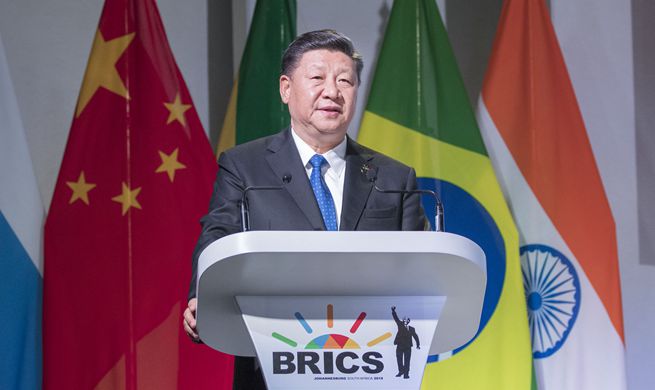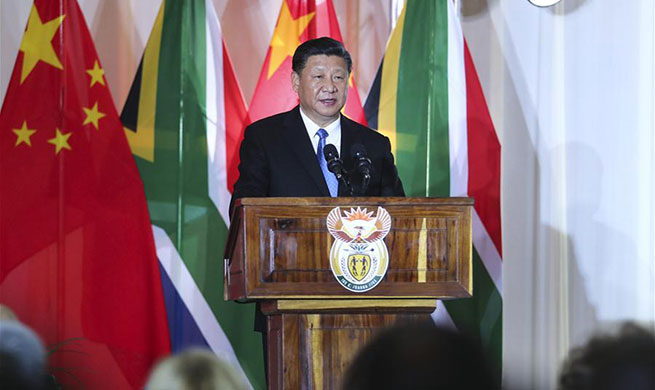WASHINGTON, July 26 (Xinhua) -- A Pew Research survey released Thursday showed that a majority of Americans supported the idea of using gene editing to deliver direct health benefits for babies, but considered the use of gene editing to boost a baby's intelligence going "too far."
According to a national survey done from April 23 to May 6, about 72 percent of Americans said that changing an unborn baby's genetic characteristics to treat a serious disease or condition that the baby would have at birth was an appropriate use of medical technology.
About 60 percent supported the use of gene editing to reduce a baby's risk of developing a serious disease or condition over their lifetime while 38 percent deemed it taking medical technology too far.
By contrast, when it came to using the technology to make a baby more intelligent, only 19 percent said it would be appropriate.
The study showed that about two thirds of them objected to the testing on human embryos with gene editing.
Also, 58 percent believed gene editing will very likely lead to increased inequality because it will only be available to the wealthy and some 54 percent anticipated a slippery slope, saying it's very likely that "even if gene editing is used appropriately in some cases, others will use these techniques in ways that are morally unacceptable."
Specifically, only 18 percent of American adults consider it very likely that development of gene editing techniques would pave the way for new medical advances that benefit society as a whole.
Among the findings, men are more prone to accepting gene editing to change a baby's genetic makeup than women and those with high levels of science knowledge are more likely to consider gene editing technique positively.

















